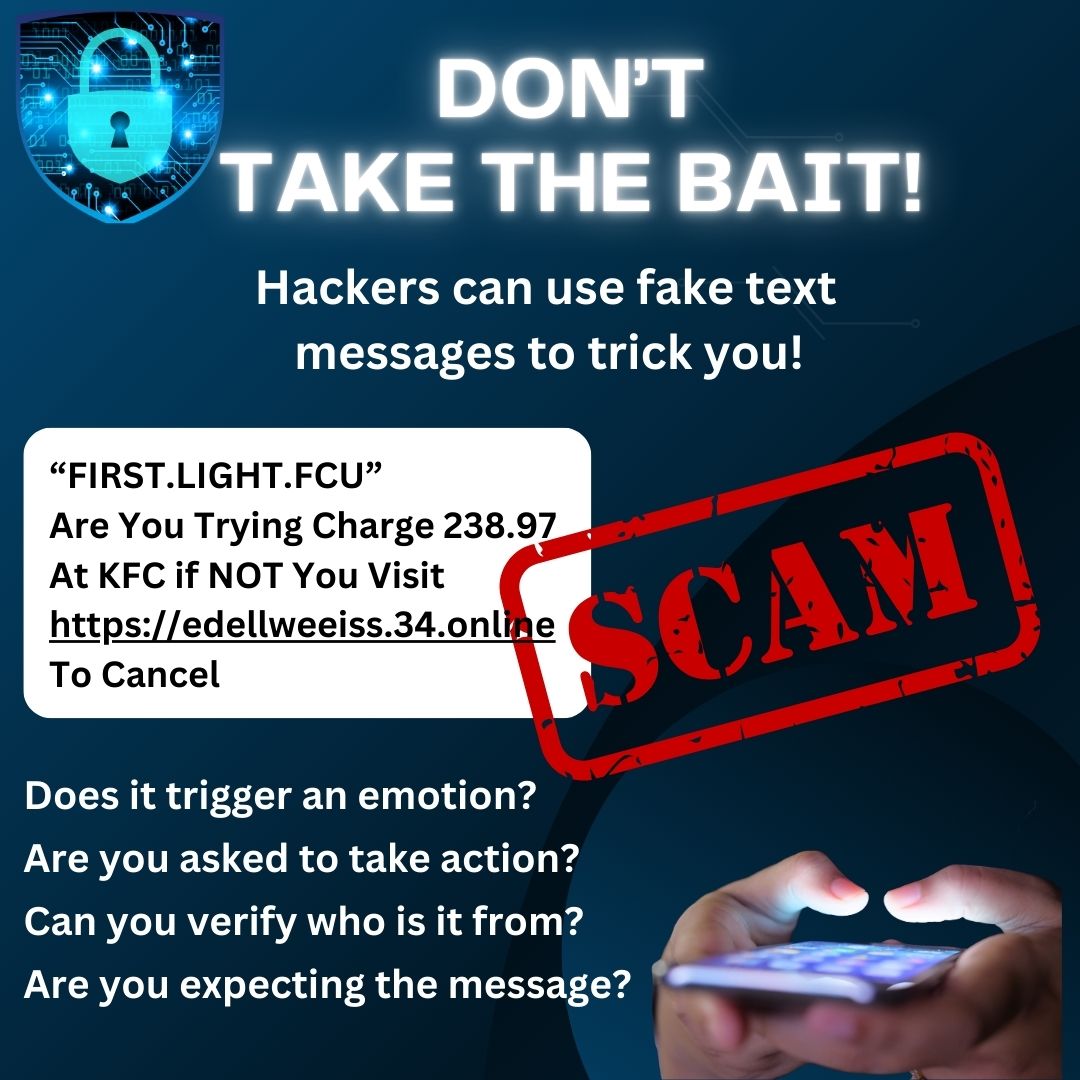You are now leaving the FirstLight Federal Credit Union website. The Credit Union is not responsible for the privacy practices or the content of other websites. In no event will the Credit Union be liable for problems arising from the use of the FLFCU website to link to other websites, including but not limited to computer viruses, loss of data, delay in operation, transactions conducted between the third party and the member, and transmission or loss of privacy.
There are a lot of scams out there. Do you know what to look out for? Here’s some information for you with some recommendations on how to protect your online accounts and personal information.
FirstLight Federal Credit Union will NEVER call, text or email you asking for any personal information, PIN number, answers to security questions, or the unique number on the back of your credit or debit card. Should you receive or have responded to a call, text, or email requesting this information, please call FirstLight IMMEDIATELY with the phone number or email from which it came and the content of the message. You can reach us at at 1.800.351.1670.

To reduce the risk of your or your business’s online security being breached, we recommend the following:
The Internet represents an insecure channel for exchanging information leading to a high risk of intrusion or fraud, such as phishing, online viruses, trojans, worms and more. Click below for a training designed to assist you and all members of your family in making wise decisions when it comes to Internet usage. Enter the password: homecourse and click Submit.
"Phishing" is when attackers send malicious emails designed to trick people into falling for a scam. Typically, the intent is to get users to reveal finacial information, system credentials or other sensitive data. In today's world, these attacks are common. Protect yourself by knowing the dangers of phishing and what you can do to prevent an information breach.
Our cell phone numbers are being used increasingly by information brokers as the window to personal information that’s kept by nearly all corporations, financial institutions, and, yes, social media networks. Make sure you protect yourself against mobile attacks.
Scammers can hide behind phony profiles on social media. They can take over an account or join a virtual community you trust to encourage you to trust them. But you can make it harder for scammers to target you:
Remember that FirstLight will NEVER call, text, or email you asking for any of your personal account information. If you have responded to any of these scam phone calls, text messages, or emails, please call FirstLight immediately.